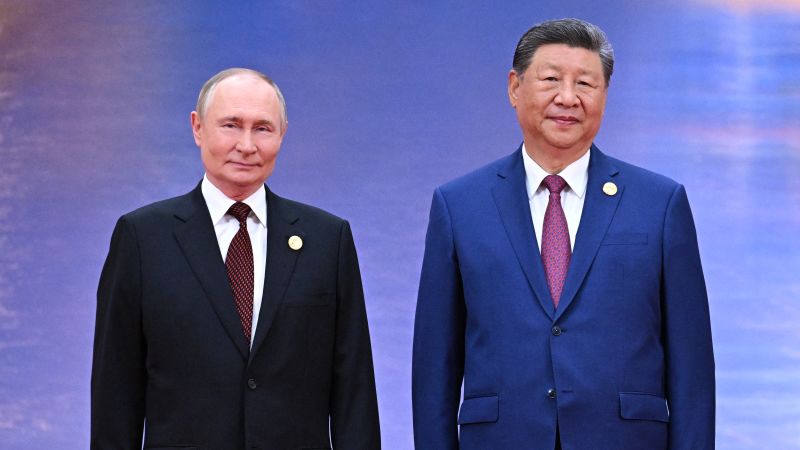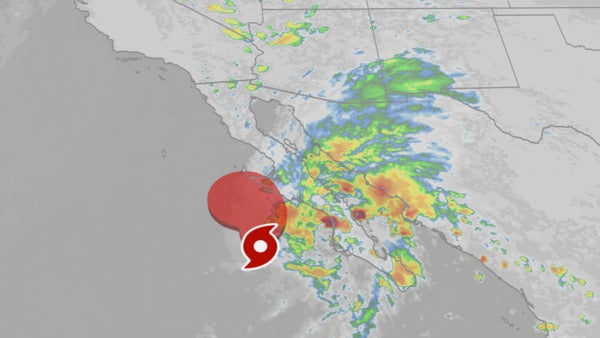The Xi-Putin Partnership: A Challenge To Western Global Dominance?

Welcome to your ultimate source for breaking news, trending updates, and in-depth stories from around the world. Whether it's politics, technology, entertainment, sports, or lifestyle, we bring you real-time updates that keep you informed and ahead of the curve.
Our team works tirelessly to ensure you never miss a moment. From the latest developments in global events to the most talked-about topics on social media, our news platform is designed to deliver accurate and timely information, all in one place.
Stay in the know and join thousands of readers who trust us for reliable, up-to-date content. Explore our expertly curated articles and dive deeper into the stories that matter to you. Visit Best Website now and be part of the conversation. Don't miss out on the headlines that shape our world!
Table of Contents
The Xi-Putin Partnership: A Challenge to Western Global Dominance?
The burgeoning relationship between Chinese President Xi Jinping and Russian President Vladimir Putin has sent ripples throughout the global political landscape. More than just a strategic alliance, their partnership represents a significant shift in the global power balance, prompting questions about the future of Western global dominance. Is this alliance a genuine threat, or simply a temporary convergence of interests? Let's delve into the intricacies of this complex relationship.
The Foundation of the Xi-Putin Partnership:
The partnership between Xi and Putin is rooted in a shared desire to reshape the existing international order, which they both perceive as being unfairly dominated by Western powers. This shared vision transcends mere economic cooperation; it encompasses a multifaceted agenda:
- Countering Western Influence: Both leaders view the West, particularly the United States, as a primary obstacle to their respective national ambitions. Their collaboration actively challenges Western-led institutions like NATO and the World Trade Organization, promoting alternative multilateral frameworks.
- Economic Interdependence: Despite sanctions imposed on Russia, economic ties between China and Russia are strengthening. Increased trade and energy cooperation solidify their interdependence and provide a buffer against Western economic pressure. This includes initiatives like the Power of Siberia gas pipeline and significant investments in joint infrastructure projects.
- Technological Collaboration: Facing Western technological restrictions, China and Russia are increasingly cooperating in areas like artificial intelligence, space exploration, and military technology. This collaboration aims to reduce their reliance on Western technology and develop independent technological capabilities.
- Military Cooperation: Joint military exercises and the sharing of military technology demonstrate a growing level of military cooperation, signaling a willingness to challenge Western military dominance. This includes increased joint naval patrols and the development of advanced weaponry.
Is it a Genuine Threat to Western Dominance?
The Xi-Putin partnership presents a multifaceted challenge to Western global dominance. While the West retains significant economic and military power, the rising influence of China and Russia is undeniable. However, several factors temper the extent of this threat:
- Internal Challenges: Both countries face significant internal challenges. Russia's economy is under strain due to sanctions, while China grapples with its own economic vulnerabilities and internal political dynamics.
- Differing Interests: While their shared opposition to the West provides a strong foundation, underlying differences in national interests could potentially create friction. China’s economic ambitions may sometimes clash with Russia’s geopolitical aspirations.
- Western Resilience: The West is not a passive observer. It is adapting to the evolving geopolitical landscape by strengthening alliances, investing in new technologies, and focusing on economic diversification.
The Future of the Global Order:
The long-term implications of the Xi-Putin partnership remain uncertain. While it undoubtedly represents a significant shift in the global power balance, whether it truly signals the end of Western global dominance is debatable. The future will depend on the evolving dynamics between these major powers, their internal resilience, and the adaptability of the West. The coming years will be crucial in shaping the future of the global order and determining the true extent of this challenge to Western influence.
Further Reading:
- [Link to a relevant article from a reputable news source about China's economic growth]
- [Link to a relevant article from a reputable news source about Russia's geopolitical strategies]
- [Link to a relevant article from a reputable news source about NATO's response to the Xi-Putin partnership]
This evolving situation requires continuous monitoring and analysis. Stay informed and consider the multifaceted nature of this complex geopolitical landscape.

Thank you for visiting our website, your trusted source for the latest updates and in-depth coverage on The Xi-Putin Partnership: A Challenge To Western Global Dominance?. We're committed to keeping you informed with timely and accurate information to meet your curiosity and needs.
If you have any questions, suggestions, or feedback, we'd love to hear from you. Your insights are valuable to us and help us improve to serve you better. Feel free to reach out through our contact page.
Don't forget to bookmark our website and check back regularly for the latest headlines and trending topics. See you next time, and thank you for being part of our growing community!
Featured Posts
-
 Shwk Jdyd Bh Bazar Tla Qymt Tla W Skh Amrwz Shnbh 11 Shhrywr 1404
Sep 03, 2025
Shwk Jdyd Bh Bazar Tla Qymt Tla W Skh Amrwz Shnbh 11 Shhrywr 1404
Sep 03, 2025 -
 Mazda Production Plummets Shift To Suvs Impacts Output Of Cx 30 And Mazda3
Sep 03, 2025
Mazda Production Plummets Shift To Suvs Impacts Output Of Cx 30 And Mazda3
Sep 03, 2025 -
 28 Drop In Mazda Exports Us Tariffs Undermine Usmca Agreement
Sep 03, 2025
28 Drop In Mazda Exports Us Tariffs Undermine Usmca Agreement
Sep 03, 2025 -
 Costco Early Access Policy Sparks Debate Among Members
Sep 03, 2025
Costco Early Access Policy Sparks Debate Among Members
Sep 03, 2025 -
 Sergio Gor Examining The Appointment Of Trumps Friend As Indias Envoy
Sep 03, 2025
Sergio Gor Examining The Appointment Of Trumps Friend As Indias Envoy
Sep 03, 2025
Latest Posts
-
 An Interview With Julio Torres Perspectives On Color Toys And Hollywood
Sep 05, 2025
An Interview With Julio Torres Perspectives On Color Toys And Hollywood
Sep 05, 2025 -
 Tropical Storm Lorena Pummels Northwestern Mexico Heavy Rainfall And Flooding Reported
Sep 05, 2025
Tropical Storm Lorena Pummels Northwestern Mexico Heavy Rainfall And Flooding Reported
Sep 05, 2025 -
 College Football Power Rankings A First Look At The Top 25 Teams
Sep 05, 2025
College Football Power Rankings A First Look At The Top 25 Teams
Sep 05, 2025 -
 Hollywood Diversity Film Aesthetics And Toys A Conversation With Julio Torres
Sep 05, 2025
Hollywood Diversity Film Aesthetics And Toys A Conversation With Julio Torres
Sep 05, 2025 -
 Middle Of The Night Rescue Repatriating Guatemalan Children From Us Immigration Custody
Sep 05, 2025
Middle Of The Night Rescue Repatriating Guatemalan Children From Us Immigration Custody
Sep 05, 2025
